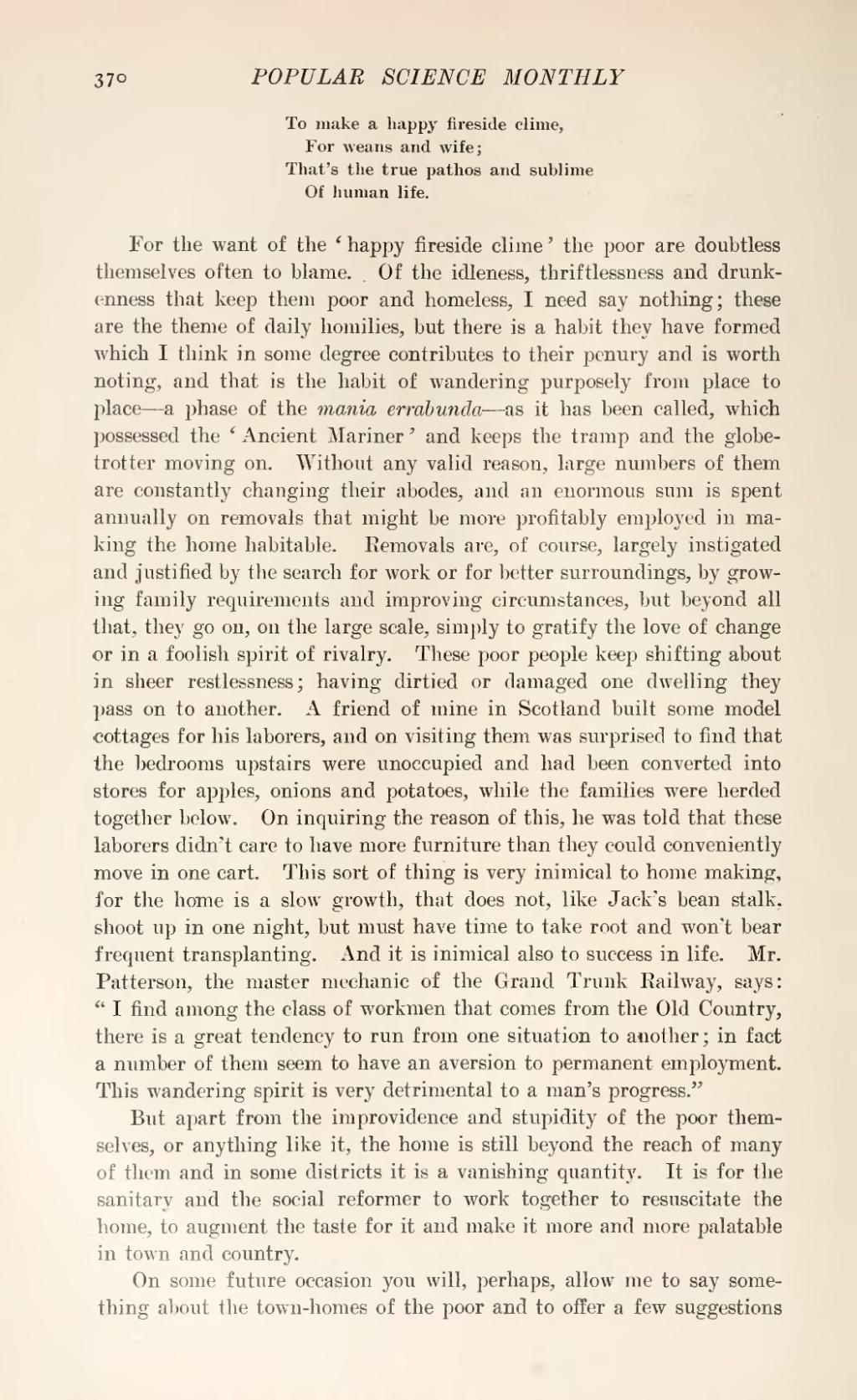To make a happy fireside clime,
For weans and wife;
That's the true pathos and sublime
Of human life.
For the want of the 'happy fireside clime' the poor are doubtless themselves often to blame. Of the idleness, thriftlessness and drunkenness that keep them poor and homeless, I need say nothing; these are the theme of daily homilies, but there is a habit they have formed which I think in some degree contributes to their penury and is worth noting, and that is the habit of wandering purposely from place to place—a phase of the mania errabunda—as it has been called, which possessed the 'Ancient Mariner' and keeps the tramp and the globetrotter moving on. Without any valid reason, large numbers of them are constantly changing their abodes, and an enormous sum is spent annually on removals that might be more profitably employed in making the home habitable. Removals are, of course, largely instigated and justified by the search for work or for better surroundings, by growing family requirements and improving circumstances, but beyond all that, they go on, on the large scale, simply to gratify the love of change or in a foolish spirit of rivalry. These poor people keep shifting about in sheer restlessness; having dirtied or damaged one dwelling they pass on to another. A friend of mine in Scotland built some model cottages for his laborers, and on visiting them was surprised to find that the bedrooms upstairs were unoccupied and had been converted into stores for apples, onions and potatoes, while the families were herded together below. On inquiring the reason of this, he was told that these laborers didn't care to have more furniture than they could conveniently move in one cart. This sort of thing is very inimical to home making, for the home is a slow growth, that does not, like Jack's bean stalk, shoot up in one night, but must have time to take root and won't bear frequent transplanting. And it is inimical also to success in life. Mr. Patterson, the master mechanic of the Grand Trunk Railway, says:
"I find among the class of workmen that comes from the Old Country, there is a great tendency to run from one situation to another; in fact a number of them seem to have an aversion to permanent employment. This wandering spirit is very detrimental to a man's progress."
But apart from the improvidence and stupidity of the poor themselves, or anything like it, the home is still beyond the reach of many of them and in some districts it is a vanishing quantity. It is for the sanitary and the social reformer to work together to resuscitate the home, to augment the taste for it and make it more and more palatable in town and country.
On some future occasion you will, perhaps, allow me to say something about the town-homes of the poor and to offer a few suggestions

